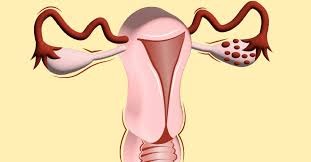You may get vitamin D by consuming these foods
A vital nutrient, vitamin D is necessary to sustaining our general health and wellbeing. Often called the “sunshine vitamin,” it is mostly produced in our skin when exposed to sunlight. We shall examine the numerous dietary and environmental sources of vitamin D in this post.
Vitamin D: Its Vitality
Let’s examine the importance of vitamin D for our health before learning about its dietary sources.
The Vitamin Sunshine
Because our bodies can make vitamin D when our skin is exposed to sunshine, it stands out among vitamins. It differs from other vitamins since it is produced naturally, as opposed to others that can only be gotten from our food.
Beyond Strong Bones
Helping our bodies absorb calcium, which is necessary for keeping strong and healthy bones, is one of vitamin D’s primary functions. But its advantages go beyond bone health.
Immune System Assistance
Additionally, vitamin D is essential for maintaining our immune system. It assists in controlling immunological reactions, which is crucial for battling sickness.
Mental and Emotional Health
Recent studies indicate that vitamin D intake may have an effect on mood and mental health. Low vitamin D levels have been related in several studies to illnesses including depression.
Vitamin D Obtaining from Sunlight
Sunlight Creation
Sunlight is the main natural source of vitamin D. The production of vitamin D in our bodies is triggered when our skin is exposed to UVB radiation from the sun.
Synthesis-Affecting Factors
The time of day, location, and skin tone all have an impact on how much vitamin D our skin generates from sunshine.
UV protection and vitamin D
Although sunscreen is necessary to protect our skin from damaging UV rays, it may also lower the amount of vitamin D that our bodies naturally create. A balance must be struck.
Vitamin D sources in food
Large Fish
Salmon, mackerel, and trout are among the fatty fish that are great providers of vitamin D. They provide omega-3 fatty acids, which are good for the heart, in addition to vitamin D.
Cod Liver Extract
The supplement version of cod liver oil is a powerful source of vitamin D. It has long been used as a treatment for vitamin D insufficiency.
Enhanced Foods
Dairy products like milk and yogurt, as well as several morning cereals and orange juice, are among the many foods that have vitamin D added.
egg whites
A modest quantity of vitamin D may be found in egg yolks. They are a fantastic alternative for those who may not eat dairy or seafood.
Mushrooms
When exposed to sunshine or UV radiation during development, many varieties of mushrooms, such as shiitake and maitake, naturally contain vitamin D.
Supplements and Levels of Vitamin D
When to Take Supplements
Sunlight and dietary sources of vitamin D may not be sufficient in certain circumstances. Supplements may be a good approach to keep levels at a healthy level, particularly in areas with little sunshine.
Consult a healthcare professional
It’s critical to speak with a healthcare professional before beginning any vitamin D pills. They can assess if supplementation is required and suggest the appropriate dose.
the conclusion
Our bodies need vitamin D for a number of purposes, including bone health, immunological support, and maybe mood management. While sunshine is a natural source of vitamin D, dietary decisions and supplementation may also help to keep levels at their ideal range. To make sure you’re receiving enough of this crucial vitamin, keep in mind to maintain a balance between sun exposure, nutrition, and supplementation, if necessary.







